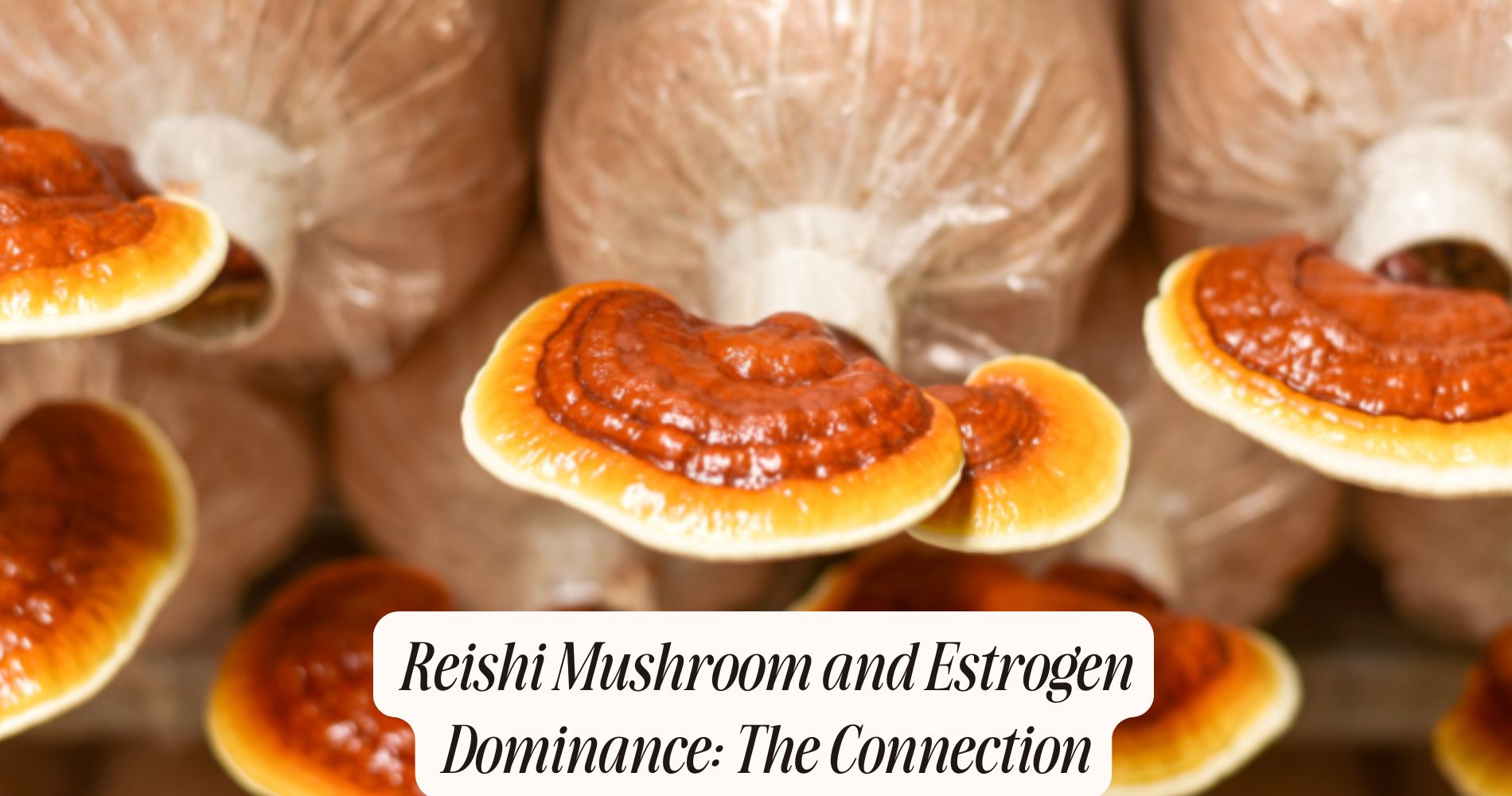
Turkey Tail Mushroom and Thyroid: What You Should Know
Overview of Turkey Tail Mushroom
Although you may not have heard of it, Turkey Tail Mushroom, scientifically known as Trametes versicolor, is gaining recognition for its potential health benefits. This fungus has a rich turkey tail history, dating back centuries in traditional Chinese medicine, where it was utilized for its immune-boosting properties. Its vibrant, fan-shaped appearance, resembling a turkey's tail, makes it easily identifiable in the wild.
You'll find Turkey Tail Mushroom primarily growing on decaying wood, and it thrives in temperate forests. It contains bioactive compounds, such as polysaccharide-K (PSK) and polysaccharide peptide (PSP), which have been the focus of various studies. These compounds are believed to enhance immune function, making Turkey Tail a popular choice in complementary therapies for cancer patients, particularly in Japan, where PSK is an approved treatment adjunct.

In addition to its historical usage, Turkey Tail exhibits broad medicinal uses beyond immune support. Its potential to modulate gut health and act as a prebiotic has drawn attention from researchers.
As interest in natural remedies grows, understanding the therapeutic applications of Turkey Tail Mushroom becomes increasingly relevant for those looking to explore holistic health options.
Nutritional Profile and Benefits
Turkey Tail Mushroom not only boasts a rich history and immune-boosting properties but also presents a compelling nutritional profile that contributes to its medicinal value. This mushroom is primarily composed of polysaccharides, particularly polysaccharide-K (PSK), which plays a significant role in enhancing immune support. PSK has been extensively studied for its ability to activate immune cells, thereby improving your body's defense mechanisms.

In addition to polysaccharides, Turkey Tail is rich in vitamins, minerals, and antioxidants. It contains essential nutrients such as B vitamins, vitamin D, and trace minerals like selenium and potassium. These nutrients are essential for maintaining overall health and can aid in various metabolic processes.
The antioxidants found in Turkey Tail help combat oxidative stress, further supporting immune function. The nutritional benefits of Turkey Tail extend beyond mere immune support; they also promote gut health. The prebiotic fibers present in the mushroom foster a healthy microbiome, which is crucial for digestion and overall well-being.
Thyroid Function Explained
The thyroid gland, a butterfly-shaped organ located at the base of your neck, plays an essential role in regulating various metabolic processes in your body. It produces thyroid hormones—primarily thyroxine (T4) and triiodothyronine (T3)—which are important for maintaining energy levels, body temperature, and heart rate. These hormones influence how your cells utilize energy, impacting overall metabolism.
Thyroid hormones are regulated by the pituitary gland through the release of thyroid-stimulating hormone (TSH). When TSH levels rise, your thyroid increases hormone production. Conversely, low TSH levels signal the thyroid to decrease hormone release. This intricate feedback loop is fundamental for maintaining hormonal balance.
Thyroid disorders, such as hypothyroidism or hyperthyroidism, can disrupt this balance. Hypothyroidism occurs when your thyroid fails to produce sufficient hormones, leading to symptoms like fatigue, weight gain, and depression.
On the other hand, hyperthyroidism results from excessive hormone production, causing symptoms such as anxiety, weight loss, and rapid heartbeat. Understanding thyroid function is important for recognizing these disorders and their potential impact on your health.
Potential Effects on Thyroid Health
Maintaining ideal thyroid function is vital for overall health, and various factors can influence this balance. Turkey tail mushroom, known for its immune modulation properties, may have implications for thyroid health that warrant consideration. The polysaccharides found in turkey tail can enhance immune responses, which is essential for individuals with autoimmune thyroid conditions like Hashimoto's or Graves' disease.
By supporting the immune system, turkey tail may help mitigate chronic inflammation that can adversely affect thyroid function.
Additionally, the mushroom's potential to promote hormonal balance can't be overlooked. Thyroid hormones are intricately linked to the body's endocrine system, and any disturbance in hormone levels can lead to significant health issues.

Turkey tail mushroom may play a role in normalizing hormonal fluctuations, thus contributing to a more stable thyroid environment.
However, it's important to note that while preliminary studies suggest these benefits, more research is needed to establish definitive links. If you're considering turkey tail mushroom as a supplement for thyroid health, consult with a healthcare professional to guarantee that it's appropriate for your specific situation.
Balancing immune function and hormones is key to ideal thyroid performance.
How to Incorporate Turkey Tail Mushroom
Incorporating turkey tail mushroom into your diet can enhance your overall health, particularly if you're focusing on thyroid wellness. One effective method is to explore various turkey tail recipes. You can easily add this mushroom to soups, stews, or stir-fries, allowing its unique flavor and health benefits to blend seamlessly with other ingredients.
For example, a broth enriched with dried turkey tail can serve as a base for a nutritious soup.

Alternatively, if you prefer convenience, consider mushroom supplements. These often come in the form of capsules or powders, providing a concentrated dose of turkey tail's beneficial compounds. When selecting supplements, verify they're sourced from reputable manufacturers to guarantee quality and potency.
Regardless of your choice, aim to incorporate turkey tail into your routine consistently. Research suggests that regular consumption may yield the best results for supporting thyroid function and overall immune health.
As you adjust your diet, monitor how your body responds and consult with a healthcare professional, especially if you have existing thyroid conditions or are on medication. This approach will help you maximize the potential benefits of turkey tail mushroom effectively.
Try SUPER MUSHROOM GUMMIES for Thyroid Support
As you explore the benefits of Turkey Tail Mushroom for thyroid health, consider adding Well Gummies' SUPER MUSHROOM GUMMIES to your daily routine. These convenient gum chews are packed with 10 powerful mushrooms, including Turkey Tail, to naturally fuel your brain, energize your body, and support your immune system. With the delicious taste of fresh wild berries and no jitters or crash, these vegan gummies are an easy and tasty way to boost your overall wellness. Enjoy the balanced body and clear mind that Well Gummies can provide—all day, every day.
Frequently Asked Questions
Is Turkey Tail Mushroom Safe for Pregnant or Breastfeeding Women?
You should consult a healthcare professional before using turkey tail mushrooms during pregnancy or breastfeeding. While they offer potential benefits, mushroom safety remains a concern, and individual health circumstances greatly impact safe usage.
Can Turkey Tail Mushroom Interact With Thyroid Medications?
You should consult your healthcare provider regarding turkey tail's potential interactions with thyroid medications. While turkey tail has benefits, it's essential to guarantee it won't disrupt your thyroid function or medication efficacy. Always prioritize safety.
How Does Turkey Tail Mushroom Support Overall Immune Health?
Turkey tail mushroom enhances your immune system by providing polysaccharide compounds that stimulate immune cell activity. These compounds support your body's defenses, promoting overall health and resilience against infections and diseases effectively.
Are There Any Side Effects From Consuming Turkey Tail Mushroom?
You might experience mild gastrointestinal discomfort from turkey tail mushroom, especially at higher dosages. It's essential to follow dosage recommendations to minimize risks while maximizing health benefits, ensuring a balanced approach to supplementation.
Where Can I Find High-Quality Turkey Tail Mushroom Supplements?
You can find high-quality turkey tail mushroom supplements by sourcing them from reputable brands that adhere to strict quality standards. Look for third-party testing and certifications to guarantee you're getting a safe, effective product.
Conclusion
Incorporating turkey tail mushroom into your diet may support overall health, but its specific effects on thyroid function require further research. While its rich nutritional profile offers potential benefits, individuals with thyroid conditions should consult healthcare professionals before adding it to their regimen. Understanding the interplay between turkey tail and thyroid health is essential, ensuring safe and informed choices that align with your unique health needs. Prioritize evidence-based approaches when considering any supplement for thyroid management.




